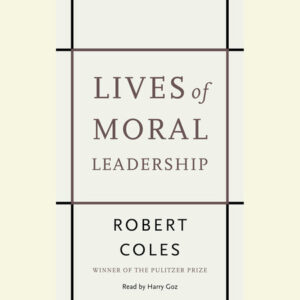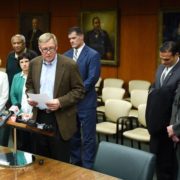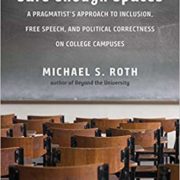Some teachers find it easier to keep the status quo as many politicians do. After all, the status quo puts them where they are. So why change?
The 1960s carry much weight. Some folks see those years as the beginning of America’s demise because of “free love” and the “hippie culture;” some folks see that decade as one of political upheaval that forever changed our republic, and more ills from that era are still discussed, but I see those years as magnificent ones.
After graduating high school in 1964, I went to the only college I could get into because I had no choice. Not a good or mediocre student, I went to a small state college in eastern North Carolina, where I was accepted. However, there, I learned and grew under the guidance of some wise teachers, good friends, and some of the folks of that rural community. And the Civil Rights Movement and the Vietnam War were powerful teachers during those four years and afterward.

Lives of Moral Leadership by Robert Coles
Those years recently came back to me as I read Robert Coles’ Lives of Moral Leadership, in which he examines lives that he sees as ones of moral leadership. He writes of Dorothy Day, Dietrich Bonhoeffer, Lillian Smith, Robert Kennedy, and many others; however, the profile of a New Orleans teacher caused my memories of the 1960s to arrive like a sweep of fresh breeze.
Elaine Vogel was a well-heeled daughter of the Garden District in New Orleans. The daughter of a successful banker and socialite mother, she shocked her parents when she decided to be a teacher; and to make her decision worse, she would teach in a public school, not in one of the private schools approved by the social elite of New Orleans.
In the fall of 1960, while Ruby Bridges, Tessie Prevost, and two other young Black girls integrated Frantz School and McDonogh 19, two public schools in the Crescent City, Elaine Vogel taught her all-White 5th-grade students in another McDonogh school. One of her first lessons was teaching the correct pronunciation of Negro and using that word to describe Blacks.
However, that proved to be a tough lesson because the parents of her students were White citizens living deep in Louisiana during 1960. Vogel told Coles concerning the correcting of her students, “I’d overlooked the fact that when you start going after the way, children use or pronounce certain words, especially a word meant to describe—well, Negroes—you’re touching on their home life, the way their parents think, their values.”

Agrarian Rebel by Tom Watson
Her teaching led to parental complaints and meetings with her principal, who cautioned Vogel on what she was teaching and said to Vogel, “Elaine, you’ve been protected by your life, and you can speak as you like—but for a lot of people here, it’s not so easy.” Yet Vogel chose to teach what was right and taught her children about C. Vann Woodward’s Tom Watson: Agrarian Rebel and Ralph Bunche and the United Nations. Before long, she and her students held lengthy class discussions on moral leadership.
Elaine Vogel put the words of Albert Jones, a Black man, into action. Speaking to a church group debating whether to drive their children from Boston’s Black Roxbury to better schools across town, Jones said to the group, “You’re all busy. It’s important to be busy, but if you don’t find the time to change the world, then you’re busy keeping it the way it is, and that’s the truth Jesus knew, and that’s the truth we’ve got to find for ourselves, right here.”
Vogel and Jones are voices out of the 1960s; for me, they are the voices I heard as a college student active in the anti-war and civil rights movements. While there was noise in such places as Haight Ashbury during those years, it was not what I heard. Instead, I heard and witnessed moral leadership from Dr. King, Robert Kennedy, Dave Mixner, Gene McCarthy, Joan Baez, John Lewis, and many more well-known and ordinary folks. Other voices and actions of such actors as “Bull” Connor and George Wallace reminded us of what we were fighting against.
I believe (or hope) that we still have teachers like Elaine Vogel who challenge their students. However, in an article in the May issue of the Atlantic, some teachers attending a conference on teaching the Holocaust share how they fear parental complaints and have to trim what they teach about the Holocaust because of state laws enacted by non-educators. The article asks whether how the Holocaust is now taught encourages Anti-Semitism.
In my forty-plus years as an educator, I saw two types of teachers exist. One teacher was Elaine Vogel, who challenged herself and her students. The other was a “busy teacher,” so “busy being busy” that they could not find the time to change what they were doing. That teacher lived what Albert Jones warned his church group against: “Busy keeping it as it is.”
Some teachers find it easier to keep the status quo as many politicians do. After all, the status quo puts them where they are, so why change?
It takes courage to be a teacher like Elaine Vogel. But in this climate of non-educators like state representatives, school boards, and loud groups of local parents managing our schools, we need courageous educators to become moral leaders.
To be less is to rob our children.



